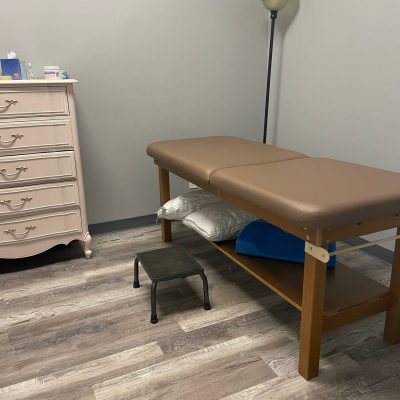Living with a neurogenic bladder can significantly affect one’s daily life, not just physically but emotionally and mentally as well. Neurogenic bladder, a condition where nerve damage impacts bladder function, is a common result of neurological disorders such as multiple sclerosis (MS), Parkinson’s disease, spinal cord injuries, or stroke. People with this condition often struggle with issues such as urinary incontinence, urinary retention, or frequent urinary tract infections (UTIs), which can lead to a profound impact on their quality of life.
The Psychological Impact of Neurogenic Bladder
Loss of Control and Identity
One of the most challenging aspects of neurogenic bladder is the loss of control over one’s own body. Many individuals with this condition experience urinary incontinence, which can lead to feelings of shame, embarrassment, and helplessness. The unpredictability of accidents may cause people to withdraw from social interactions, limit outings, and reduce engagement in hobbies or activities they once enjoyed. This loss of independence and sense of self can severely affect one’s confidence and emotional well-being.
Social Isolation and Stigma
People living with neurogenic bladder often feel stigmatized because of the association between bladder control and societal perceptions of adulthood and self-regulation. Fear of public embarrassment due to leakage or odor may lead to avoidance of social situations, work environments, and even intimate relationships. This isolation can snowball into feelings of loneliness and depression, especially if people feel that others do not understand the severity of their condition. The stigma surrounding bladder dysfunction is a key factor in the mental health struggles that many people with neurogenic bladder face.
Increased Anxiety
The constant need to find restrooms or wear incontinence products often leads to heightened anxiety. Many people with neurogenic bladder experience the fear of an accident happening in public, causing chronic stress and hypervigilance. This anxiety can become overwhelming, leading to avoidance behaviors that further disrupt social interactions, work, or travel. The mental energy required to manage this anxiety can be draining and may exacerbate feelings of depression.
Depression and Self-Esteem Issues
Dealing with the chronic nature of neurogenic bladder, especially when it comes with other neurological conditions, can lead to long-term emotional exhaustion. Many individuals with this condition experience feelings of sadness, frustration, and grief for the life they once had. Struggling with incontinence can erode one’s self-esteem, with many people feeling like their bodies have betrayed them. This emotional burden often leads to depression, particularly when individuals feel there is no viable solution to regain control of their lives.
How Pelvic Floor Therapy Can Help
Pelvic floor therapy is a valuable intervention for those dealing with neurogenic bladder. It offers not only physical relief but also emotional and psychological support, helping individuals regain control, confidence, and quality of life.
Restoring Physical Function
Pelvic floor therapy involves exercises and techniques aimed at strengthening the muscles that support the bladder and urethra. A pelvic floor therapist works with patients to teach them how to contract and relax these muscles correctly, which can improve bladder control. Additionally, biofeedback and electrical stimulation may be used to help restore some level of neurological communication between the brain and bladder.
Strengthening the pelvic floor helps reduce the frequency of incontinence episodes, giving individuals more control over their bladder. This can drastically decrease anxiety about accidents, helping individuals feel more confident in managing their condition and reducing the need to wear incontinence products in public.
Addressing Psychological and Emotional Support
Beyond physical improvements, pelvic floor therapy provides emotional and psychological benefits. Many individuals with neurogenic bladder feel like their condition is insurmountable, but working with a therapist helps them see that progress is possible. The structure of therapy sessions and the incremental improvements provide a sense of accomplishment and hope, helping to combat the feelings of helplessness that often accompany this condition.
Pelvic floor therapists also often provide education and reassurance about the normalcy of bladder dysfunction, helping to de-stigmatize the condition. This understanding can be an enormous relief for individuals who have internalized feelings of shame or embarrassment. Simply knowing that others experience the same struggles and that effective treatments are available can alleviate the emotional burden.
Improving Quality of Life
By restoring a sense of control over bladder function, pelvic floor therapy helps to improve individuals’ overall quality of life. The reduction in anxiety, increased mobility, and ability to participate in social and professional activities leads to an overall improvement in mental health. Many patients report feeling less isolated, more engaged in life, and more confident in their ability to manage their bladder symptoms.
Resources and Support Options for Managing the Emotional Side of Bladder Dysfunction
Dealing with the emotional and psychological impact of neurogenic bladder requires a multi-faceted approach. In addition to pelvic floor therapy, there are several resources and support options available to help manage the mental health aspects of living with bladder dysfunction.
Therapy and Counseling
Mental health professionals, such as psychologists or counselors, can provide a safe space for individuals to explore the emotional challenges they face due to their bladder dysfunction. Cognitive-behavioral therapy (CBT) is one therapeutic approach that can help individuals challenge negative thought patterns and develop healthier coping strategies. Therapy can also address the underlying anxiety, depression, or self-esteem issues that often accompany neurogenic bladder.
Support Groups
Connecting with others who are dealing with similar challenges can be incredibly therapeutic. Support groups, both in person and online, offer a sense of community and understanding that is vital for individuals who feel isolated or stigmatized by their condition. Organizations such as the Bladder Health Foundation or the Neurogenic Bladder Advocacy Group offer resources, forums, and group meetings where people can share their experiences and find support.
Self-Care and Stress-Management Practices
Practicing mindfulness, relaxation techniques, and other stress-management tools can help reduce anxiety related to neurogenic bladder. Learning how to manage stress can positively impact both bladder function and mental well-being. Exercises such as yoga, deep breathing, and meditation can help improve emotional regulation and increase resilience in the face of daily challenges.
Conclusion
Neurogenic bladder has a profound impact not only on physical health but also on mental and emotional well-being. Feelings of loss of control, isolation, anxiety, and depression are common among individuals with this condition. However, pelvic floor therapy offers a pathway to reclaiming physical control and emotional stability. Through strengthening the pelvic muscles and providing psychological support, pelvic floor therapy can improve bladder function, restore confidence, and enhance overall quality of life. Coupled with other resources like counseling, support groups, and stress-management practices, individuals with neurogenic bladder can find the tools they need to manage both the physical and emotional challenges of their condition.







